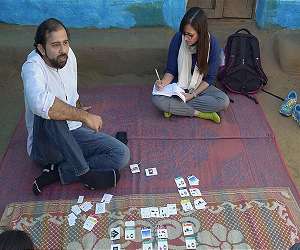Suntrace GmbH and BayWa r.e., together with B2Gold Corp. (CA), have completed commissioning of the world’s largest off-grid solar-battery hybrid system for the mining industry, at the Fekola gold mine in Mali, West Africa. The solar-battery hybrid plant was integrated and commissioned successfully with the existing power plant operation, and the solar plant is on course to be 100% complete by the end of June.
Hybrid projects such as this, which combine solar energy with conventional energy generation and battery storage, are an effective way to provide reliable power supply day and night in off-grid areas. Ideally suited to their needs, B2Gold approved the hybrid project for implementation in July 2019, following completion of preliminary studies by Suntrace and BayWa r.e..
The Fekola gold mine operates 24-hours a day. During the daytime, the new 30 MW solar plant allows three out of six heavy fuel oil generators to be shut down; the energy production of the residual three generators could also be significantly reduced. The 15.4 MWh battery storage compensates energy generation fluctuations and assures a reliable operation, which allows up to 75% of the electricity demand of the gold mine to be covered by renewable energy during the daytime.
Dennis Stansbury, Senior Vice President at B2Gold, commented: “Suntrace and BayWa r.e. have played a vital role in our work towards more sustainable production at Fekola. The implementation of a solar-battery hybrid system was an obvious choice to help achieve this, not only for its environmental credentials, but also its economic viability. This is a landmark project which we expect to pave the way for more sustainable power generation within the mining industry in West Africa.”
The integration of the solar power plant with the battery system will ensure safe and reliable power, saving 13.1 million litres of heavy fuel oil (HFO) a year. The close collaboration of all three parties as one team was vital to implementing this complex project, helping to realise the huge potential of solar battery hybrid systems.
Martin Schlecht, COO at Suntrace, commented: “We are very proud that B2Gold has entrusted Suntrace, together with BayWa r.e. as Engineering and Procurement contractor, to support the development and implementation of this innovative project. Thanks to excellent team work with B2Gold and BayWa r.e., we were able to manage the completion despite the global challenges that the COVID-19 pandemic imposed on all of us. We are proud to jointly deliver a functioning project, well integrated with the mining operations, which reduces CO2 emissions from power generation for the Fekola mine by roughly 20%.”
The PV-battery system will help to reduce CO2 emissions by 39 000 tonnes per year.
Thorsten Althaus, Project Manager at BayWa r.e., added: “Integrating such a large amount of solar into a small, isolated grid safely and reliably has been a major technical challenge and required the use of battery storage as well as a tailor-made control system. This was conceptualised in the early stages of the project and we ensured that our vision was implemented accordingly by the suppliers. It is extremely rewarding to see how well this solution performs in reality and shows that the technology works and is just waiting to be applied on further projects.”
Related Links
BayWa r.e. AG
Suntrace
All About Solar Energy at SolarDaily.com
|
We need your help. The SpaceDaily news network continues to grow but revenues have never been harder to maintain. With the rise of Ad Blockers, and Facebook – our traditional revenue sources via quality network advertising continues to decline. And unlike so many other news sites, we don’t have a paywall – with those annoying usernames and passwords. Our news coverage takes time and effort to publish 365 days a year. If you find our news sites informative and useful then please consider becoming a regular supporter or for now make a one off contribution. |
||
|
SpaceDaily Contributor $5 Billed Once credit card or paypal |
SpaceDaily Monthly Supporter $5 Billed Monthly paypal only |
|

![]()
Encouraging solar energy adoption in rural India
Washington DC (SPX) Apr 09, 2021
More than 73 million households in remote areas of the world get electricity not from a conventional power grid but rather from sources such as solar lanterns, solar home systems (SHSs) that can power several devices, and local solar-based microgrids. Such off-grid devices and systems provide life-changing services to people who are off centralized electricity grids, and they help spread the use of renewable energy. As a result, international aid organizations and nongovernmental organizations (NGOs) ar … read more
